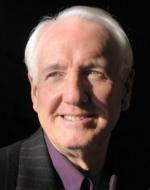Requisite organization principles describe how Presidents at stratum V, EVPs at VI, and CEOs at VII ought to be capable of working on longer term tasks of 5-10, 11-20, and 20 + years to properly implement the organization's strategy.
Yet at the World Future Society* conference in Boston, July 7-10th, where future is defined as beyond five years, while there were many smart, grey haired people there I got the impression that a small minority of the many workshops were targeted at organizational settings and that a small percent of attendees or presenters were corporate executives.
Several futurist elders claimed that their organizational clients were interested in nothing beyond three to five years -- normally the work of vice-presidents. A popular futurist speaker being recruited to shake up a major conference of European CEOs said he was told that his talk had to be about short term shocks.
A major WFS conference focus was on the rapid rate of technological change, methods to forecast that change and the approaching Singularity when computers are predicted to be more powerful than human brains. However several presenters on these topics said that their methods were of interest mostly to senior engineers and attempts at introduction often lacked the support of VPs.
It appeared that much environmental scanning work important to effective strategic planning is being out-sourced to major consulting firms. Internal staff who prepare such scans in several global corporations reported their role was three levels from the top, that their outputs were power point presentations, that they did not know how or if they were used. They received few questions or feedback on their work.
One panel of corporate futurist staffers reported that none of them had any direct knowledge about how many hours or days their company's top team spent discussing the future and indicated that their impression was that top teams dealt extensively with shorter term operational problems.
Why are the futurists in such despair about corporate interest?
Are structural features of the trading of public companies and other forces causing senior executive work to be compressed?
Are CEO sponsors of major requisite organization projects different in their long-term orientation?
Sir Roderick Carnegie, long-term CEO of CRA said that he was searching in the mid 1970s for a management approach that would help transform Australia's labour relations and competitive position in the world. Other CEO sponsors of long-running RO projects have expressed similar long term views.
Or does requisite organization structure enable executives to do their appropriate longer term work?
Your comments are welcome.
*"The World Future Society is a nonprofit, nonpartisan scientific and educational association of people interested in how social and technological developments are shaping the future. The Society was founded in 1966 and is chartered as a nonprofit educational and scientific organization in Washington, D.C., U.S.A."
Corporate Foresight?
Major organizations and consulting firms that provide Requisite Organization-based services

A global association of academics, managers, and consultants that focuses on spreading RO implementation practices and encouraging their use
Dr. Gerry Kraines, the firms principal, combines Harry Levinson's leadership frameworks with Elliott Jaques's Requisite Organization. He worked closely with Jaques over many years, has trained more managers in these methods than anyone else in the field, and has developed a comprehensive RO-based software for client firms.




